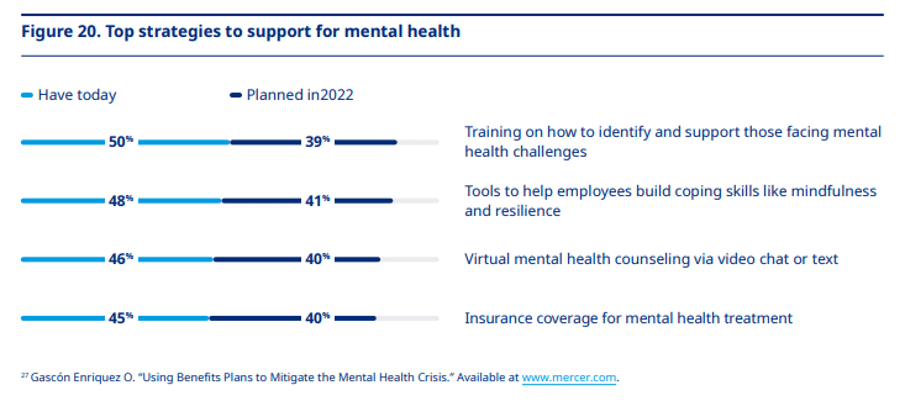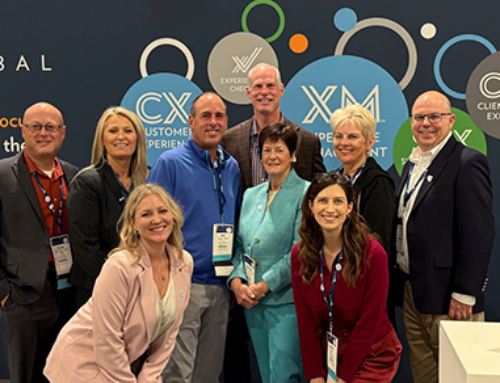
Consulting Corner — Open For Business
In the wake of our return to office, we’re reflecting on where we were two years ago versus where we are now. For reference, take a look back at our June 2020, COVID-19 Benchmark Survey: Impacts and Reactions. As the Altair COVID-19 survey demonstrates, in the summer of 2020, there was so much that was still unknown. As we review the impact of the last two years, we see how far we’ve come, what has changed, and what changes are here to stay.
Hybrid Work
In Mercer’s Global Talent Trends 2022 report, 54% of workers expressed a desire to work from home 100% of the time and 74% identified remote/hybrid work models as being important to the future success of the organization, while 72% of executives had serious concerns regarding the potential deterioration of the company’s culture due to remote work. To balance this difference in priorities, 98% of companies report they are taking steps to create a healthy hybrid work model.
Company Culture Beyond Four Walls
Finding ways to retain and express organizational culture outside of a face-to-face, office environment is a continued challenge. This is perhaps most acute for new hires onboarded remotely during the pandemic. Success may no longer be measured by demonstration of organizational culture being carried out within a physical office, but rather by how happy employees are in their jobs and how connected they feel to their organization through the mission and actions of the company.
People Sustainability
Virtual and remote work will outlast the pandemic. Despite the work-life benefits, we have seen how remote work can lead to increased digital overload, stress, and isolation. According to a survey by Flexjobs, 76% of workers surveyed feel their mental health is affected by workplace stress. This mental health crisis has compelled greater focus by leadership on tools and resources to build resilience and support for workers as evidenced in this graph produced by Mercer.

Disruption = Opportunity
While the global mobility function has historically struggled to get strategy in front of an organization’s C-suite, out of necessity during COVID, that distance shortened. Global mobility became an integral partner in the functioning of business – from deciphering and navigating complex travel restrictions to drafting national interest exemptions (NIEs ) and throughout, being inundated with remote work requests. This all has re-purposed the very function itself. Mobility service providers can expect to play an increased role in partnering with clients to support ever-evolving needs and by developing flexible policies and processes that can handle some level of (sustained) disruption.
Organizational Agility
For companies to thrive, developing and maintaining an agile infrastructure is critical. The distributed workforce has required companies to adjust many aspects of their employment and employee experience models. As an example, in Mercer’s Global Talent Trends 2022 report, 46% of companies say addressing pay equity is a top priority for 2022 and 80% of executives and HR leaders believe people should be paid the same for the same job regardless of where they work. This will require a more agile and nuanced pay approach that prioritizes skills-based pay. Across programs and policies, employers will need to design ways to operate that focus on building adaptability versus reactivity. Prepare for the unexpected.
We continued into this conversation in our on-demand webinar recording where dove deeper into remote and virtual work policies, flexibility, and the new mission for global mobility.
About Global Consulting Services

One size doesn’t fit all when it comes to our Client Partners’ programs, policies, and cultures. In order to deliver an unmatched mobility experience, we provide expert recommendations and insights to build and strengthen our clients’ benefit offerings to meet their overall business and talent mobility objectives for the future. Working with more than 100 companies each year, Altair’s Global Consulting Services team takes a holistic approach to mobility by arming clients with first-rate data, research, and trend information to find the best relocation and mobility solutions for your employees, your mobility program, and your company.






